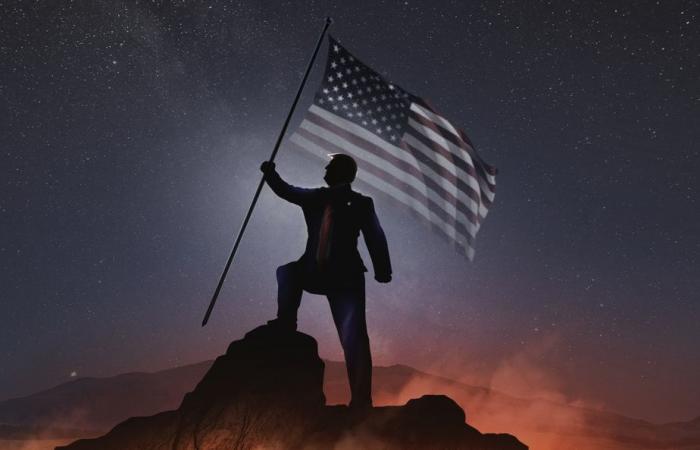But what explains Donald Trump’s expansionist instincts?
Published at 5:00 a.m.
The answer comes in two parts. Because the American president’s recent statements about Canada are not of the same nature as those about Greenland (which he had already said he wanted to buy during his first term) and Panama.
They obviously don’t have the same objective either.
We will remember that on January 7, during his first press conference of the year, the Republican politician refused to exclude “military or economic coercion” to get his hands on Greenland and Panama.
Then a reporter asked him if he was “also considering using military force to annex and acquire Canada.”
He answered in the negative.
He rather favors “economic strength, because Canada and the United States would really be something. You get rid of that artificially drawn line and see what it looks like! And it would also be much better for national security.”
However, if the threat of imposing customs tariffs is anything but a fad, that of annexing Canada is only “provocation,” believes Jennifer Welsh, professor of global governance and security at McGill University.
What this would entail in terms of expenditure of political capital and, potentially, more coercive measures is not likely to be acceptable to Donald Trump.
Jennifer Welsh, professor of global governance and security at McGill University
Words that echo those of Canada’s Minister of Finance, Dominic LeBlanc. “I think it’s a way for him to sow confusion, to agitate people, to create chaos knowing that it will never happen,” he declared the day after Donald Trump’s press conference .
Same story with the most flamboyant of the former national security advisers of the Republican president, John Bolton. He told NBC that the Republican president was simply playing “troll” and trying to annoy Justin Trudeau.
“There is no philosophy behind Mr. Trump’s statements,” he added. There is no strategy. »
-« Ridicule »
“Most people will take it as a joke because it’s ridiculous,” says Professor Stephen Saideman.
“You can see historical antecedents to it, but it’s not really motivated by American nationalism in the broad sense,” he says. There aren’t a lot of Americans who say, we really need to own all of North America or all of the Americas. »
He believes, on the other hand, that the expansionist aims of the Republican president regarding Greenland, and even more so regarding Panama, are more serious.
Jennifer Welsh agrees. Hearing Donald Trump say that he wants to seize Greenland at all costs, a territory which belongs to a NATO member country (Denmark), and then seeing one of the real estate developer’s sons go there disturbed this expert1.
It’s chilling and I think we need to prepare ourselves for this world.
Jennifer Welsh, professor of global governance and security at McGill University
“The United States has supported the international system for a very long time and many fear that it will withdraw from that system. But these provocations suggest it goes even further than that under Trump. The country is essentially joining the ranks of autocratic great powers who believe the time has come to once again open up the question of territorial sovereignty. »
Not using military force to modify borders had nevertheless become a “fundamental rule”, she underlines. But the rules of the game that have prevailed for many decades are now being called into question.
Seeing the United States become a “revisionist” power in this area, when the country had long been seen as the defender of the rules-based international order, is, in his opinion, “very destabilizing”.
The change in attitude of the United States regarding its role in the world began a few decades ago, recalls Ludovic Tournés, of the University of Geneva.
Following World War I, the United States “viewed the destiny of the world and its own destiny as one,” but this idea began to lose its luster as the Cold War ended.
“Donald Trump continues what I call a movement of deindexation between the United States and the world, which had already been initiated. And he does it with a style that is obviously very different and much more brutal than his predecessors. »






